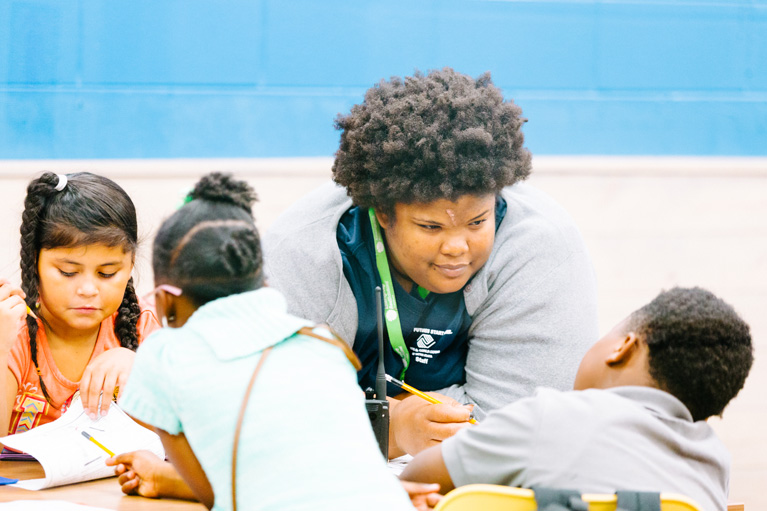When young people walk into a Boys & Girls Club, they count on two things: supportive adults who help them to see their best selves and experiences that leverage their assets and interests. While these experiences may seem routine, every time Club staff asks an open-ended question, or every time youth have an opportunity to work in partnership with adults in making decisions, high-quality staff practices are at work. These practices not only facilitate great program experiences, they support and foster social emotional development. At Boys & Girls Clubs, we believe that every moment is an opportunity to build essential skills that make a significant difference in a young person's ability to build relationships, identify and express themselves, and make responsible decisions.
One of my favorite things about visiting local Clubs is talking to youth and hearing their perspective. Throughout my travels, I've learned how social emotional development lives in the fabric of the Club experience, and is a result of intentional staff practice.
- Dyamond, age 14, loves playing basketball at the Club. Through basketball, he's learning teamwork. A sense of belonging, how it feels be part of something bigger than himself, to be valued as part of a team. He's learning how he feels when he wins, how he feels when he loses, and, how to handle those emotions.
- Alexandra, age 9, can't wait to get to the Club after school to do art. For her, art might be the first time all day she's had a chance to choose what she wants to do. In art she gets to express herself and learn to feel confident in her abilities. She learns responsibility when she takes good care of her materials.
- LaMarcus, age 11, loves playing games at the Club. Through games, he's learning how to solve problems and how to resolve conflict with his peers. When a new kid joins, he gets to teach them how to play the game and learns how to help others.
None of this happens by chance. Club staff work hard every day to create environments that support positive youth development and build social and emotional skills. Skills like impulse control, communication and problem-solving that enhance our ability to identify emotions and express ourselves, build positive relationships with others, navigate challenging circumstances, and make responsible decisions. These skills ultimately equip us to be resilient, caring and responsible adults.
Boys & Girls Club environments are rich in the many features that make social emotional development possible. Boys & Girls Clubs are safe, positive, and inclusive places where kids and teens can take risks, explore their interests and follow passions in a nurturing culture and climate.
Research tells us that young people can develop social and emotional skills through situational learning, like the experiences of Dyamond, Alexandra, and LaMarcus demonstrate, as well as through structured program curriculum. Clubs use both these informal and formal methods to allow social and emotional development skills to be "caught" and "taught." When staff acknowledge a young person's skill development, they provide the reinforcement that helps those skills to stick.
These skills will empower our future leaders to be successful in school, work and life. For us, every moment is an opportunity to help kids and teens to become their best selves.
To learn more about our Club impact and programming, please visit bgca.org/programs or contact us at partnerships@bgca.org.




